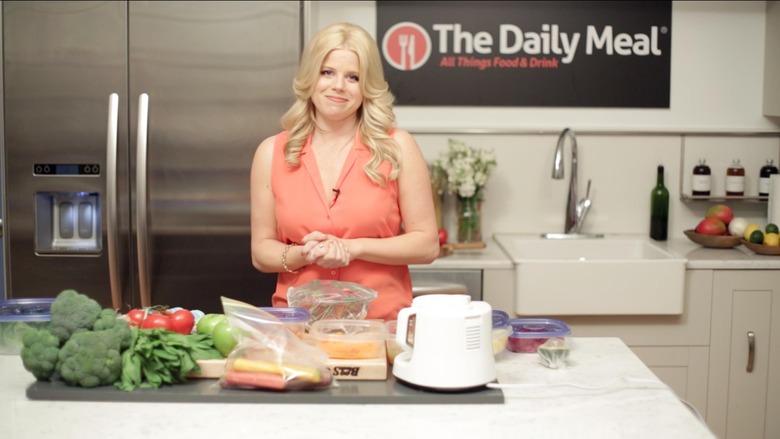Easy Ways To Stop Wasting Food And Start Saving Money
According to the National Resources Defense Council's (NRDC) 2012 report, "Wasted: How America Is Losing Up to 40 Percent of Its Food from Farm to Fork to Landfill," the average family of four in the United States tosses out between $1,300 and $2,200 worth of food every year — that's a staggering 25 percent of all the foods and beverages we buy. Even more eye opening is the fact that 40 percent of all edible food in this country goes uneaten. That translates into more than $160 billion of food wasted annually. Needless to say, it's too much. If we reduced food waste by even 15 percent, says the NRDC research, we'd have enough to keep 25 million Americans well-fed every year. And according to the United Nation's Food and Agriculture Organization, if we saved all the food discarded by retailers and consumers in the most developed countries in the world, we'd have more than enough to feed all the planet's 870 million hungry.
What's more, our current food system also wastes a tremendous amount of our precious natural resources. Converting what's grown on farms into the foods that go into our mouths — or garbage cans — eats up 10 percent of the total U.S. energy budget, requires 50 percent of U.S. land and swallows 80 percent of all freshwater consumed in the United States.
As the NRDC report explains, food accounts for the single largest component of municipal solid waste reaching landfills. The New York Times estimates that approximately 32 million metric tons of food waste ends up in landfills. And the cost of that processing to municipal governments? $1.5 billion per year. Given that those buried edibles convert to methane, a greenhouse gas that's 25 times more powerful in terms of global warming than carbon dioxide, according to the NRDC, we all really ought to think harder about how we can stop trashing so much of our food.
So, what can you do to help? Our list of simple steps for reducing waste is a great place to start.
And then there is Glad. From ClingWrap — which seals easily and is safe in the microwave — to reusable, BPA-free GladWare containers, to sturdy zipper bags, Glad wants to be part of the solution — the storage solution, that is. Glad offers all sorts of containers, wraps, and bags that keeps food fresher longer by sealing out the air that causes decomposition. Which means fewer moldy vegetables in the crisper, less methane for the atmosphere and more money in your pocket.
On glad.com, you'll find all kinds of clever tips for how to wrap, bag, and freeze your food, including a host of protection pointers for everything from poultry to pineapple. You'll also find details about Glad's #SaveItSunday campaign. Join the movement by pledging to properly wrap, bag, or store your food the day you buy it. You, and the planet, will be Glad you did.
